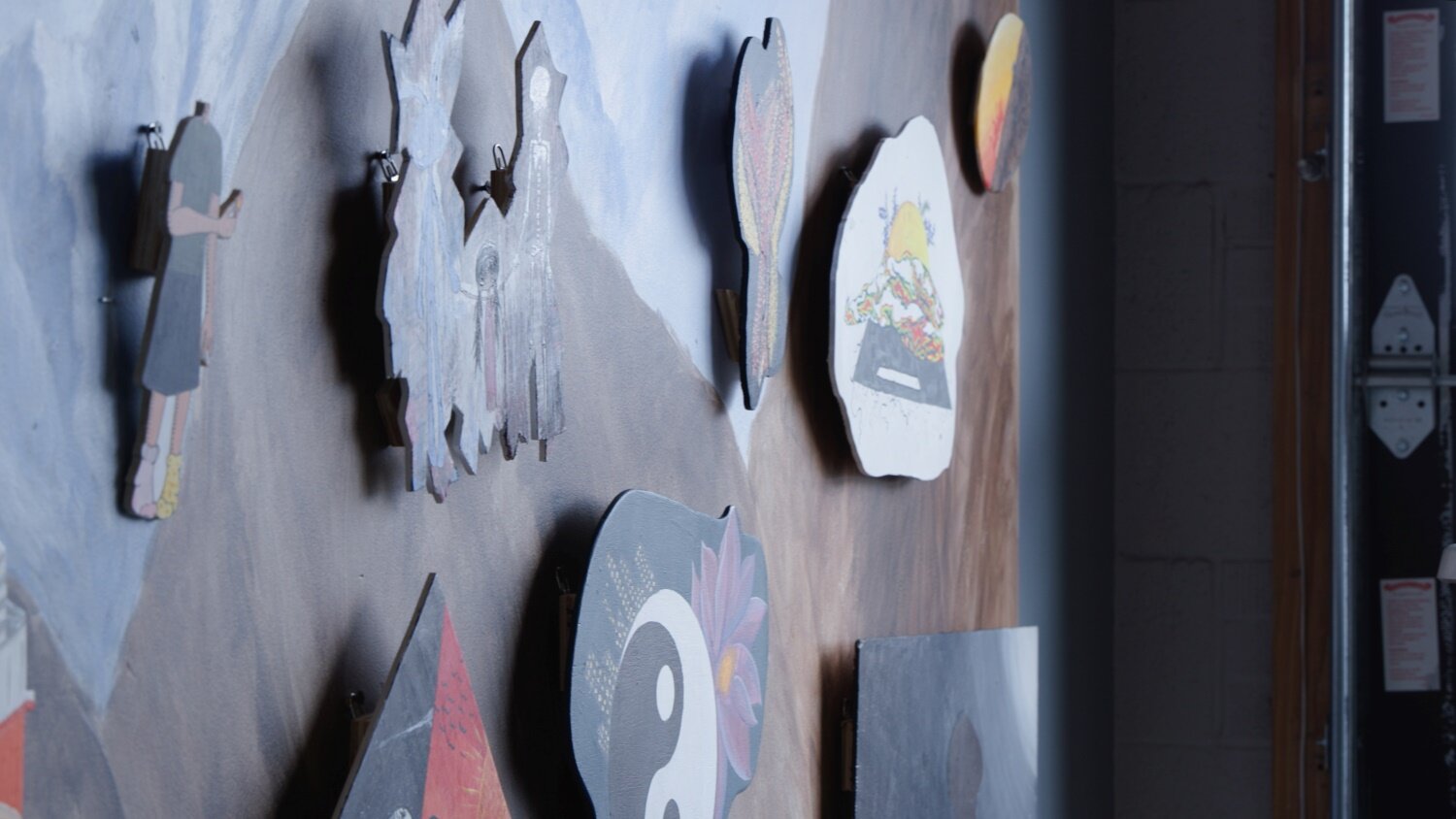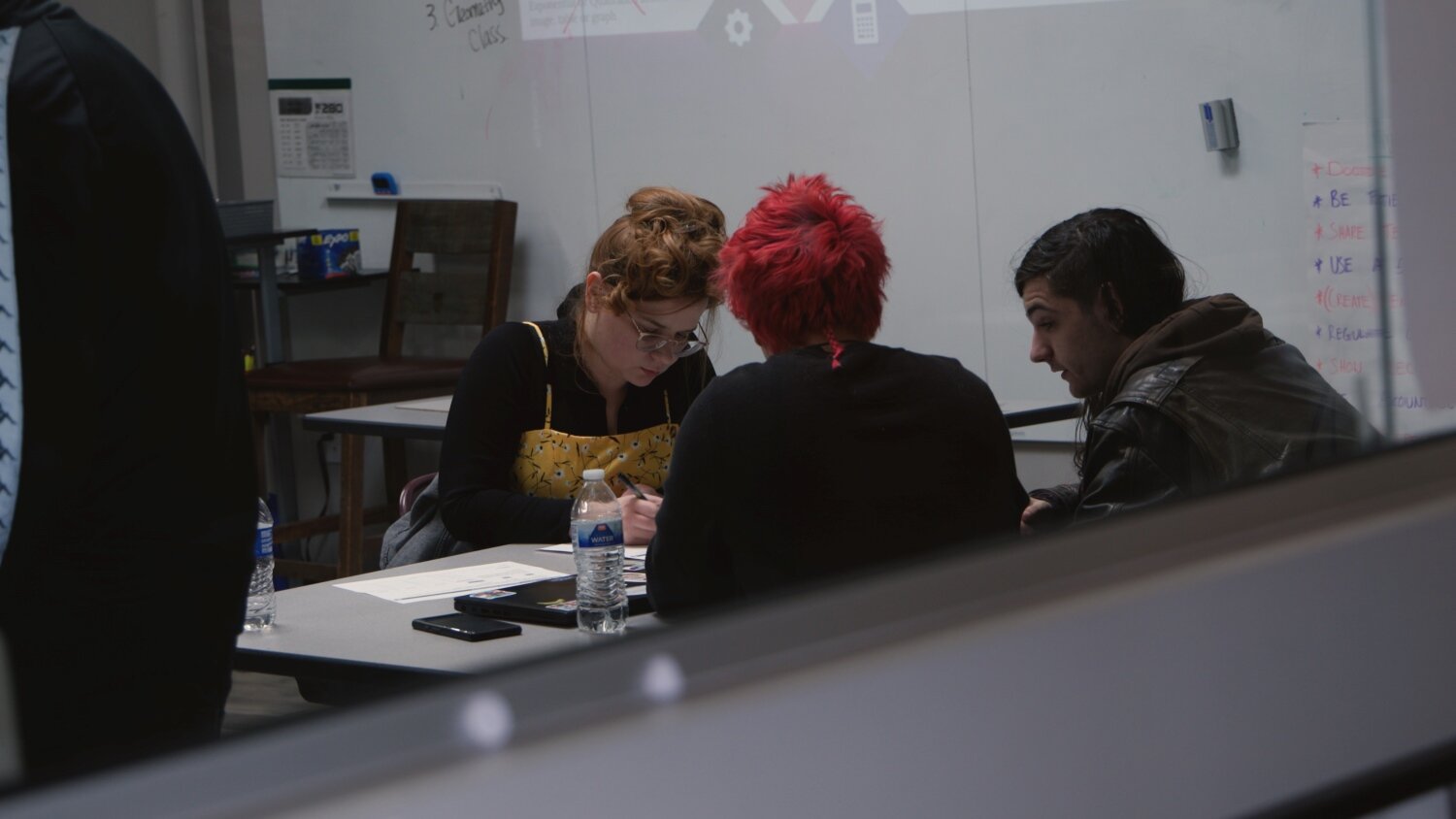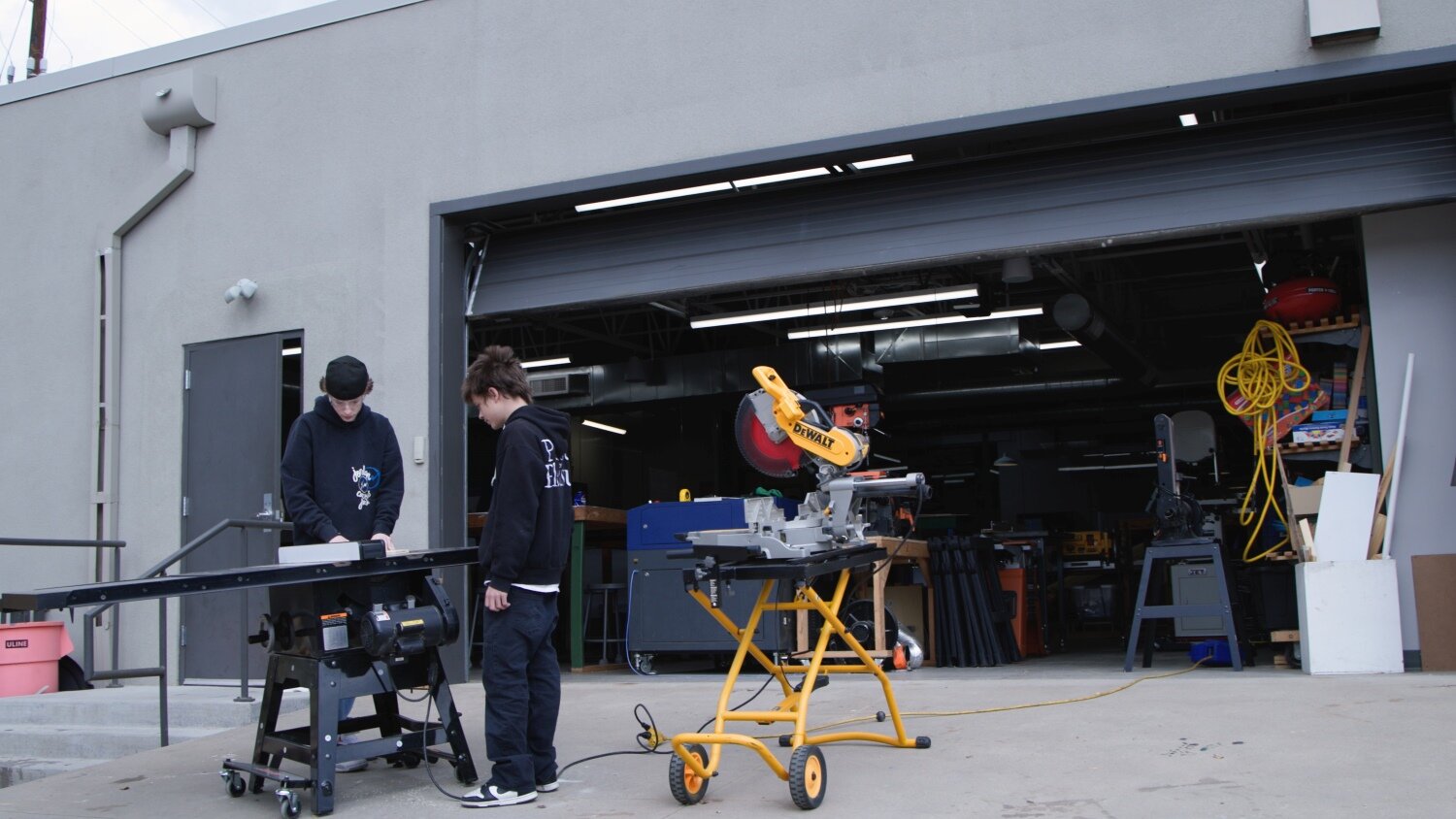Breaking the mold: High school for recovery adopts project-based learning

DENVER — This isn’t your typical high school.
Students at 5280 High School, one of the largest recovery high schools in the country, address teachers by their first names. Bookshelves and couches line the hallways in place of lockers, and kids learn in airy, open-concept classrooms.
Started in 2018, the school serves students who struggle with substance and alcohol abuse, self-harm and other self-destructive behaviors.
Junior Emma Taglione transferred to 5280 High School from a public high school in Parker two years ago. She has been sober ever since. She said she feels supported by the like-minded community that surrounds her.
“I think if I was [still] at a public school, I could not have gotten sober,” said Taglione.
Taglione said that at her old public school, she struggled in the early stages of recovery because she was surrounded by peers who drank or used drugs. In contrast, 5280 High School holds recovery meetings both at the start and end of each day for students to discuss recovery.
“We hold each other accountable,” Taglione said. “We’re there for each other when we need it. If we need a second with a friend outside of class or to talk to a teacher or a recovery coach, we have that at the tip of our fingers.”
Students at the school either enroll directly or receive a referral from their former school district. The school serves students from all over the metro area, from Thornton to Highlands Ranch.

Artwork in the hallways of 5280 High School.
Photo: Peter Vo, Rocky Mountain PBS
Keith Hayes, director of recovery at 5280 High School, said that the two requirements to attend the school are a willingness to be sober and active enrollment in a recovery program outside of the school.
“So many people have given up on these kids, but no kid is to be thrown away,” Hayes said. “Any kid can change. What they need is to have an environment that is supportive, loving and understanding of what they’re going through.”
Many of the things that students learn in class tie back to their recovery as part of the school’s project-based learning approach. For example, students in biology class learn about the way drugs and withdrawal affect the body, Hayes said.
Students in English work on navigating and healing trauma through creative writing.
In humanities, students learn about the local policies that affect them.
Dorothy Jackson, humanities teacher at 5280 High School, said that some of her pupils testified at Colorado State senate hearings on the Opioid and Other Substance Use Disorders Study Committee.
Last year, a group from 5280 were invited to present to the committee about how more funding and support for youth in recovery leads to better mental health and collective sobriety among the students.
The bill concerning recovery from substance use disorders is currently under consideration.
“We have more choices over our projects,” said sophomore Reese Lowrey, of how 5280 High School approaches academics.
“We work with people a lot more, and it’s a lot more hands on and physical instead of writing stuff down on papers all the time,” she said.

Lowrey is currently working on a massive model of a tree that represents her recovery in preparation for the school’s first Youth Recovery and Wellness Conference in May. The event, which will include students from other area schools, will bring professionals and providers together with students to talk about what they can learn from one another.
While substance abuse rates for teens continue to rise, only 7.6% of the population has received treatment.
Because teens are in school for most of their day, a lot of the students who need recovery don’t get that support at traditional schools. Hayes said that the best thing for students struggling with substance use is to be surrounded by an understanding and like-minded community.
“They [students] get to problem solve and critically think through different things that align with their recovery program,” said Hayes.
Another departure from traditional schooling at 5280 High School is the grading structure. Rather than grade every student against one general rubric, teachers evaluate students on the specific skills the kids want to work on.
In a woodshop class, some students were working on refurbishing old furniture, while others hammered nails to construct model houses.
A student named Chris was learning how to design a functional drawer while his classmate Orion practiced whittling fine details into the wood.
Students still take core curriculum classes such as math and science, but teachers approach these subjects in the same project-based way.
“Students learn not through textbooks, but through experience, by being of service to the world.” said Aliza Cruz Moore, director of curriculum and instruction at the school. “We do a lot of projects that are in conjunction with a community partner.”
Because a lot of students at the high school have struggled with traditional schooling, their grades and academics might have fallen behind.
Each student has a customized graduation plan that helps them with credit recovery, necessary classes and anything else that they need to graduate on time.

Two students cut wood in a woodshop class at 5280 High School.
Photo: Peter Vo, Rocky Mountain PBS
The school offers partnership with local colleges, internships for juniors, and capstone projects for seniors in order for them to catch up academically and also have professional experience in their areas of interest.
The students struggle with balancing schoolwork and getting sober daily and teachers and staff take that into account, Hayes said.
“If you have a kid who’s three days clean off of meth, it’s hard to ask a kid to memorize a bunch of things and take a test at the end of class,” he said.
This is the first year that the school has implemented this close tie between curriculum and recovery, said Cruz Moore.
“A lot of our students live and breathe recovery,” Cruz Moore said. “When they leave this building that is what they're doing. So [we thought], how do we tap into the passion of recovery?”
The school hopes to help students see the path to recovery and make connections along the path to commit to it more deeply.
“I feel loved here,” Taglione said. “I learn things that are valuable, and I like it a lot.”
Carly Rose is a multimedia journalist at Rocky Mountain PBS. Carlyrose@rmpbs.org.
Peter Vo is a multimedia journalist at Rocky Mountain PBS. Petervo@rmpbs.org.